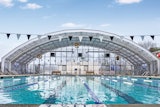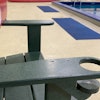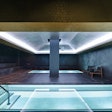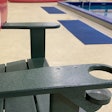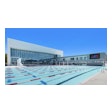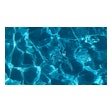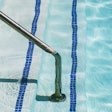Four methods for the prevention and removal of calcium-based scale and deposits in pool shells.
Explore 250+ Exhibitors and 190 Educational Sessions at AB Show.
Visit abshow.com for more information.
The white film around the water lines of your swimming pool is unsightly; but it may also indicate some imperfections in your water chemistry. Scale is the crystalline buildup of inorganic materials - most often the mineral calcium - found in pool shells composed of plaster, ceramic tile, fiberglass, stone and other surfaces commonly found in commercial applications. Consider the following methods for the prevention and removal of calcium-based scale and deposits:

Deposits will begin to form when calcium levels are too high. Maintaining proper pH (7.4 to 7.6 ppm is ideal) and alkalinity (80 to 100 ppm) will also prevent scaling. Calcium levels can be lowered through dilution (draining a portion of the pool and refilling it with fresh water) or through the use of commercially available sequestering agents.

Lifeguards often skimp on this step, but it is crucial in preventing deposits.

Most light calcium deposits can be treated by applying a solution of muriatic acid diluted with water, followed by an intense brushing (with either nylon or stainless steel bristles, depending on the surface). The solution can be applied directly with a sponge or sprayed onto the deposits. Be sure to test the water chemistry after this procedure, as the acid may lower the pH. Also, numerous manufacturers offer other products specifically formulated to remove scale on any number of surfaces.

While not appropriate for all surfaces, flathead screwdrivers and putty knives can be employed to scrape away deposits (this is often most easily accomplished with the maintenance technician positioned in the water). Specialized technicians can remove deposits through powered "blasting" using sand, glass beads or some other soft media. While effective, the procedure can be expensive.









